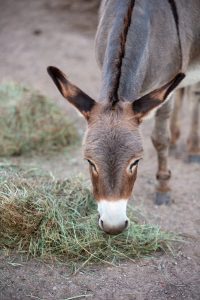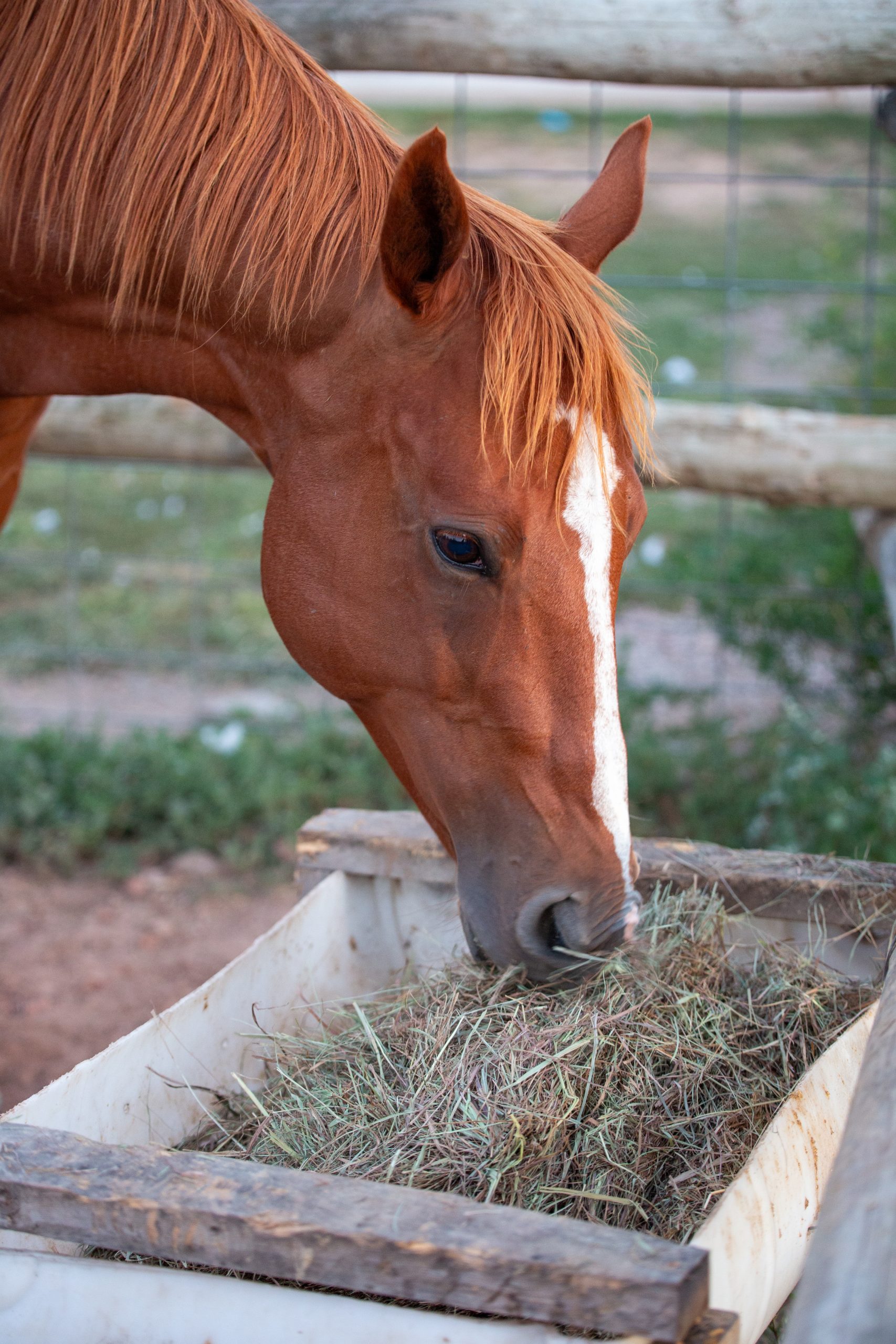Kris Hiney has a list of maladies that will kill her horses, and when it comes to choosing the best hay for them, she’s got a couple things in mind.
Hiney is an associate professor at Oklahoma State University, animal and food sciences and an equine Extension specialist who has taught and produced educational materials related to equine nutrition, reproduction, health, and management.
There are some factors that come to mind when buying hay—blister beetles, irritants, cleanliness, and safety. In Oklahoma, blister beetles are a legitimate concern for horse owners.
“They are a threat. They’re real,” she said. “Like we’re not exaggerating about those, they will kill them. And so that’s why if they want alfalfa, I recommend purchasing blister beetle-free certified hay. You may also want to seek hay for horses from other regions of the country where blister beetles are not as prevalent.”
For those wanting alfalfa, supplements that are cubed or pelleted are a good alternative, and buying hay from out of state is a good solution. Some hay dealers will bring in out-of-state hay and that’s a good second choice for those wanting to feed alfalfa.
When considering horse hay, she is looking for major irritants—foxtail or other barbed weeds that can irritate and damage the horse’s gums or tongue.
“They really can create quite a bit of damage in the horse’s mouth,” she said. “Embedded gums, burrow into lips and tongues, and that can create a lot of behavioral issues.”
Horse quality hay should have less weeds in it, but those bales with little or no weeds are normally higher quality. Johnson grass is also included as something to watch out for in bales.
“Looking for weeds that are problematic versus just things that affect quality I think are pretty important,” Hiney said.
“Thinking about the difference between a horse and a cow—horses respiratory health is extremely important for us,” she said. “If we’re going to have this as an exercising animal, he needs to have full respiratory function.”
Any time a horse is inhaling or exercising particles getting into the lungs is going to be a concern. Horses, as monogastrics, are more susceptible to some mycotoxins, fungus and others because of their lack of rumen.
“The rumen is always a little bit more protective because it can do stuff to the hay prior to to where the sight of absorption is,” Hiney said. “So when I think about horse hay versus cattle hay, again, I go down my safety concerns first.”
As far as bale type goes, horse owners really should start with what they can handle.
“I always put it in the reality of the owner. What are you able to do?” she said. “If you’re really only able to pick up a square bale and move it around, then you should only buy small squares, right?”
Small square bales cost more, but so does the equipment to handle larger bales such as bale beds or forks, tractors or other equipment that moves round bales around. Ask yourself what you can handle with the tools you have on your farm.
Many areas of the country have been suffering the effects of drought conditions, some for more than a few years. Hiney said to be proactive and secure hay supplies in advance. It’s definitely going to be regionally dependent for areas of those with hay and those without it.
“Maybe even just being a savvy owner, like, ‘Oh, it’s raining in Oklahoma, maybe there’s some Oklahoma producers to contact,’” she said. “Always the buyer beware, right. There’s internet scammers that we want our horse owners to be aware of. Don’t ever give just money and expect something to happen.”
With the scarcity of hay over the last several years, Hiney herself has stocked up on hay for her own horses, and when drought conditions started last year, she contacted her hay supplier and bought all she could.

“Sometimes you do have to be a little bit more proactive and expect that weather fluctuations will change price,” she said. “You have to have the ability to flex that spending some or realize what you may need to cut costs on because you can’t not feed hay.”
Horses do require forages to survive, but it can be in other forms instead of hay. Find some tried-and-true hay dealers or hay auctions to secure hay from. But when it comes down to it, safety needs to be top of mind. Same goes with palatability.
“They do have to eat it too. If it’s so coarse and nasty that they won’t eat it, then you’re wasting your money,” she said.
Nutrient differences can be made up with supplements and by choosing the right concentrates and what you’re able to feed.
Spending money on appropriate feeders for round bales, mangers or nets to help reduce waste is important.
“It can add up over time, and so just kind of be smart that way,” she said.
Kylene Scott can be reached at 620-227-1804 or [email protected].
Clarification
The cover story Tips for choosing horse hay, had a quote from Kris Hiney, associate professor at Oklahoma State University, animal and food sciences and equine Extension specialist discussing blister beetles.
“They are a threat. They’re real,” she said. “Like we’re not exaggerating about those, they will kill them. And so that’s why if they want alfalfa, I recommend it doesn’t come from Oklahoma.”
For those wanting alfalfa, supplements that are cubed or pelleted are a good alternative, and buying hay from out of state is a good solution. Some hay dealers will bring in out-of-state hay and that’s a good second choice for those wanting to feed alfalfa.
While there are blister beetles in many states, including Oklahoma, horse owners are advised to purchase their hay from reputable dealers and make sure the hay is free from pests. Same goes for bermuda grass and other hays marketed towards horse owners, as the beetles can be present in other hay types. Oklahoma producers have quality alfalfa hay available, with many producing the forage for many years.
For more information about blister beetles, visit extension.okstate.edu/e-pest-alerts/2022/be-aware-of-blister-beetle-activity-june-27-2022.html.




